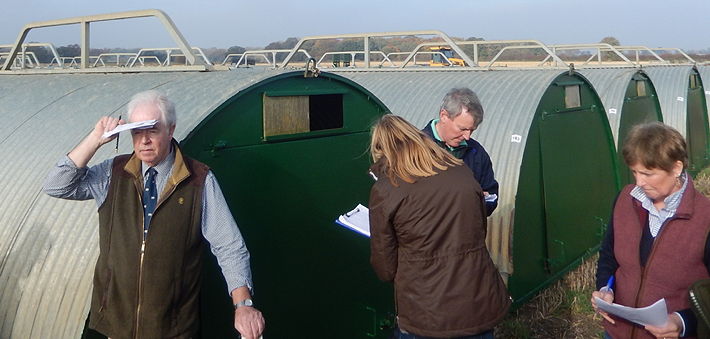European prices seem to be leading the way, with the influential German producer quote up by a significant 6 Euro cents from €1.85 EUR to €1.91, which in our money is 159p and neck and neck with UK prices.
Despite this, unfortunately very few of the major weekly contribution price abattoirs have reflected any significant movement in their weekly price announcements for next week, with most still static between 155p and 163p.
Spot bacon demand remains reasonably firm but not spectacular and it is a pity that happy couples celebrating Valentine’s Day seem to be opting for steak rather than pork on the menu.
With most bacon pigs being sold on contract, there was not a great deal of activity on the spot market, with prices generally in the 160p-164p bracket and reflecting the SPP at 162.74p.
Cull sow prices have improved marginally but have not been helped by a significant reduction in the value of the Euro, which a week ago was worth 84.17p but traded today at 83.14p. As a result, although cull sow quotes have risen on the week, this is only to the tune of around 1p with export quotes generally between 110p-114p according to load size.
Weaner values are continuing to improve, possibly reflecting more confidence in finished pig prices in the months ahead, with the latest AHDB 7kg average up by 0.79p/head to £42.51 and the 30kg ex farm average which had not been published in recent weeks made its re-appearance at a relatively healthy £59.07/head.
Rearing and finishing space still remains at something of a premium and if the current wet weather continues, straw costs are also likely to rise in the months ahead.
UK grain and protein futures prices have generally remained at similar levels on the week, with March feed wheat quoted at £157/t and September at £167/t. Spot UK feed wheat prices have however eased a touch to £146.2 (ex-farm).
Forward prices for barley saw March traded at £135/t and September at £141/t.
Hipro soya ended the week on a slightly dearer note, with March deals agreed at £306/t and June also slightly easier at £291/t.
Coronavirus and ASF impact
The effects of the Coronavirus epidemic are also starting to make themselves felt on global commodity markets, with an increase in the number of Chinese deaths putting markets in reverse.
Any good or bad news on the Coronavirus front will soon filter through to the commodity markets and there could be volatile times ahead, especially if the scale of the epidemic continues to increase.
And finally, still on the disease front, African swine fever continues to sweep through the Far East and closer to home, but good to see that the NPA are taking positive steps to remind AHDB, Animal Health and DEFRA of the need to focus public attention on stepping up bio-security levels at exit and entry ports to this country, especially as far as any trade in live pigs is concerned and to crank up the levels of surveillance to avoid ASF hitting these shores.
The scourge of ASF is particularly difficult to control in those countries where wild boar are common and that includes the Forest of Dean in this country, where radical control measures may need to be brought into place if any positive outbreaks are identified.




